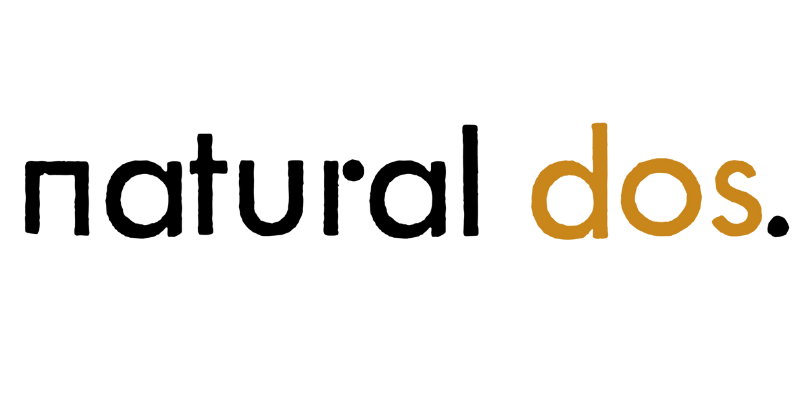
Hey there, fellow wellness explorer! You're here, so I'm guessing you've been on the lookout for ways to keep anxiety in check, right?
You've heard about CBD oil for anxiety, but are wondering if CBDA may be a better alternative?While you know CBD is widely used for help with relaxing and getting into a calm state, it doesn't work for everyone.
Although CBDA (cannabidiolic acid) is the natural form of CBD, it is also much more potent due to its superior absorption rates. Many people who are used to CBD have switched to CBDA for its improved benefits.
Let's stride into the fascinating terrain of these two cannabinoids and see how they can lend us a helping hand in tackling anxiety.
Article Highlight
- Both CBDA and CBD have some overlapping commonalities in how they interact with the endocannabinoid system, which is critical to regulating mood.
- CBDA has over 500% to 1000% better absorption than CBD.
- Both CBDA and CBD can target the serotonin receptor 5HT1A, but the potency depends on how much of the cannabinoid is absorbed by the body. Serotonin also plays an important role in your mental health.
- The benefits from CBDA and CBD for help with anxiety disorders will be based on personal biochemistry, the quality of the product, the dosage, and how often you take it. Not everyone is a responder.
- While there are more studies around the effects of CBD, CBDA is garnering more attention in the research community due to the realized absorption benefits and better purification technology on the market.
Unboxing Anxiety Disorders
You know that rush of adrenaline when you're about to speak on stage or when your favorite horror film gets eerily quiet, and you just know a jump-scare is around the corner? That's anxiety.
With anxiety disorders, though, it's like that 'jump-scare feeling' just won't exit stage left - and this happens even when there's no actual danger.
Generalized Anxiety Disorder
Next up in our chat is Generalized Anxiety Disorder (GAD). Picture this. It's like having that annoying house guest who overstays their welcome and comments on everything!
A constant worry about anything that could possibly go wrong. While everyone tries to prepare to a certain degree, if this worrying and anxiety starts to negatively effect your everyday life, it should be considered something to tackle.
When Panic Attacks
Then we have panic disorder. Picture this. You're walking down a calm, peaceful road and out of nowhere—a bear! That's a panic attack.
Your heart's racing, you're finding it hard to breathe, and your calm road suddenly looks a lot scarier. The thing with panic attacks, as defined by the American Psychiatric Association, is that they hit you without warning and quite frequently too. It's as if they enjoy surprising you when you least expect them!
Dealing with Traumatic Event
Last, but not the least, anxiety disorders can also be triggered by traumatic events. It's like your mind's stuck in a loop, replaying that nasty memory like a broken record. And the 'fear' button? It's jammed on 'on'.
Navigating the world of anxiety can seem daunting, like you're trying to solve a Rubix cube in the dark. But remember, it's okay to ask for help and take care of your mental health. You're not alone in this, and there are loads of resources and people ready to help.
CBD and Anxiety
Alright, let's spill the tea on how CBD, the cool trendsetter, is been making serious waves when it comes to anxiety management.
How Does CBD Work Against Anxiety?
Think of your body as that fabulously complex behind-the-scenes work at a Broadway show. The star of the show? Your endocannabinoid system, or ECS for short.
Now, the ECS has these handy little helpers, the CB1 and CB2 receptors, that take care of emotional and immune-related stuff. Enter stage left, CBD, who works backstage with these receptors ensuring everything runs like a well-oiled machine, keeping you relaxed and stress-free.
While CBD is well known as modulator of the CB2 receptor in the brain, new research is showing that it may also have anti anxiety affects through mechanisms involving CB1 receptors as well.
However, it is not just the endocannabinoid system, other studies show that CBD may also exert anti anxiety effects through the serotonin system.
The Clinical Science Backing CBD's Effect on Anxiety
You need proof, right?- A study in Neuropsychopharmacology found that CBD taken at 600mg could reduce symptoms of anxiety in social speaking.
- a study in the Frontiers in Psychology highlighted how 300mg of CBD can help teenagers suffering from Social Anxiety Disorder. You know, that heart-pounding feeling when you're about to speak publicly? The study found that those who took CBD for 3 months had less anxiety and discomfort than others who took a placebo.
- Not everyone is a responder to CBD, and thus it may not help with your anxiety disorders even if it helps others.
- The dosing of CBD in anxiety studies that showed positive effects are often high, usually 300mg and over.
CBDA: A Lesser-Known Anxiety Buster
If CBD is the popular kid on the block, CBDA is the quiet, mysterious one that's also worth getting to know.
Hemp plants (a subspecies of the cannabis plant) do not naturally make CBD, they make CBDA and other acidic cannabinoids. These major cannabinoid precursor compounds are coming to the front in the cannabis scientific community for their many unique benefits.
Why have you not seen CBDA as much as CBD? During conventional purification which involves heat, a process called thermal decarboxylation occurs and converts CBDA to CBD.
Until recently, technology to purify CBDA and acidic cannabinoids was not developed for commercial purposes. Natural Dos now has one of the best methods to product a full spectrum CBDA oil that contains all the acidic cannabinoids found in the hemp plant.
What Makes CBDA Special
CBDA has many of the benefits of CBD since they share a very similar molecular structure. But CBDA also has some unique anti inflammatory properties that CBD does not have.
The main thing that makes CBDA special is its superior absorption.
CBDA has between 500% to over 1000% better absorption than CBD.
The efficacy of a compound depends largely on its bioavailability, which just means how well it gets into the blood stream. If very little is taken up, then it wont have much of an effect.
CBD is known to have fairly poor absorption, which is why clinical trials are often in the high 100 mgs or even up to 2000mg in some epileptic patients.
CBDA overcomes this limitation, and allows for much more moderate doses to achieve better benefits.
Research on CBDA's Anti-Anxiety Effects
Researchers found some pretty cool stuff about CBDA relating to anxiety disorders and its mechanisms of action:- You see, CBDA interacts with our body's endocannabinoid system, just like CBD, but with greater efficacy because it can get into the blood stream and brain with more potency.
- CBDA is found to activate the 5HT1A serotonin receptor, a critical target for many anti depressant drugs in the SSRI class (selective serotonin reuptake inhibitor). This has been shown in pre clinical trials to help alleviate symptoms of anxiety.
- Inflammation has long been correlated with changes in mental health, and CBDA was recently shown to be an inhibitor of COX-2 (cyclooxygenase 2), a potent inflammatory enzyme. In fact this enzyme is the common target for most NSAIDs (non steroidal anti inflammatory drugs) like aspirin and ibuprofen.
CBD vs CBDA for anxiety: What's More Effective?
So, you're curious to know whether CBD or CBDA is the ultimate anxiety-crushing champ, right? The answer is, "well, it depends."
Your body's chemical composition, how intense your anxiety is, and the treatments you're using now all matter.
We think CBDA benefits outweigh those of CBD due to the superior absorption and the number of people who report switching to CBDA products over CBD.
What's the Difference Between CBD and CBDA?
For anxiety disorders, it may depend on a number of factors, but we think CBDA benefits outweigh CBD and should be considered a first try before other cannabinoids:
- Across the board in pre clinical trials, CBDA is being used at lower doses and still resulting in significant benefits. This allows you to take a dose in the 30mg to 100mg range of CBDA as a substitute for 300mg to 1000mg of CBD.
- Both CBD and CBDA are non psychoactive, so neither one will get you high and should not have a negative effect on anxiety like THC can have.
- CBDA also targets systemic inflammation to a higher degree than CBD. Reducing inflammation is important to improving mental health benefits.
- CBD has more clinical studies relating to anxiety disorders than CBDA, with mixed results.
- Both CBDA and CBD help regulate the endocannabinoid and serotonin system, which are important in helping your mood. However, CBDA bioavailability allow lower doses and costs to the consumer that you cant get with CBD.
Personal Preferences Matter
The golden rule? Go with what works for YOU! If you haven't tried either, why not slip on both shoes and strut your stuff?
If you are starting out and unfamiliar with how to approach hemp products, here are the major thing to think about:
- What potency should I think about when taking CBDA or CBD? It is typically advised to start with low doses and work your way up. This is in the range of 20mg to 50mg.
- How often should you take CBDA or CBD? It depends on what your are taking it for, but we often see people take it 1 to 3 times a day.
- What kind of CBDA or CBD should I buy? The best formulations are full spectrum or broad spectrum CBDA or CBD. These contain all the cannabinoids found in the hemp plant which confers greater health benefits. We recommend our Natural Spectrum CBDA Gummies or tinctures which are the only products to contain a full spectrum of acidic cannabinoids found in the hemp flower.
- Always check for a certificate of analysis (CoA), which is a third party testing report. It should show how many and what type of cannabinoids are found in the product.
Now, feel good knowing that you're better informed about CBD, CBDA, and their potential health benefits, including their anti-inflammatory properties and impact on our endocannabinoid system. Armed with this info, you can make smart choices about CBD oils, CBDA products, and other cannabis sativa-derived products.
Potential side effects
Like CBD, CBDA has minimal side effects at low and moderate doses. If you have a history of live complications, as indicated by elevated liver enzymes, please speak with your health care provider before trying. This also holds for people who are on multiple medications.
Just remember, the National Institute of Mental Health and other organizations have yet to solidify their stance on the power of these cannabinoids, so stay tuned for more developments as research expands.
Conclusion
So we’re still playing tug of war in the world of CBD and CBDA for finding that sweet spot of anxiety relief.Before going all-in with the new kids on the block, it’s awesome to bend the ear of a healthcare pro who’s up to speed with all things cannabis. This can help ensure you’re not taking a wild shot in the dark and making the best moves for your unique medical condition.
So whether you're waving the CBD or CBDA flag, stay locked on to the latest research, which you can find at Natural Dos. With diverse health benefits from CBD oil, CBD tinctures, CBD products, and even the emerging CBDA oils and CBDA compound, there's a wealth of pure CBD and related potential.
Who knows? You might just strike gold and find the perfect way to keep your anxiety at bay!



